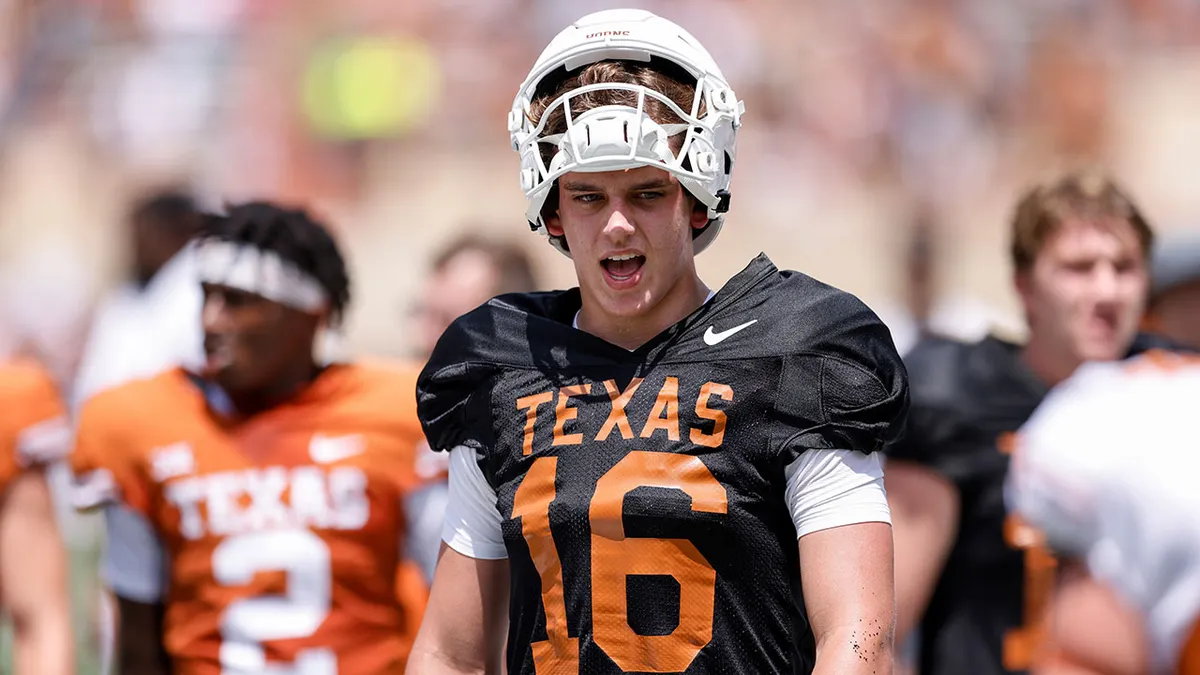Arch Manning, the University of Texas quarterback, has been living a notably understated life amidst the whirlwind of college football and the immense expectations that come with his last name. In a landscape where young athletes are often seen maximizing their brand leverage through social media and myriad endorsement deals, Manning’s approach stands distinct. The quarterback’s social media footprint is minimal, and his involvement in commercial activities is equally restrained, with his only known Name, Image, and Likeness (NIL) agreement funneling proceeds to charity. Yet, amid this backdrop of deliberate simplicity, Manning’s decision to not participate in the upcoming EA Sports College Football 25 video game has sparked a new level of discourse.
Simplicity in a Complex Landscape
Manning’s digital persona is a mirror to his “all ball” ethos. With a sparing social media presence and a clear emphasis on football, he has carved out a niche that feels increasingly rare in today’s high-stakes collegiate athletics environment. This approach has its roots in a practical understanding of priorities, but also in privilege; unlike many of his contemporaries, Manning does not carry the burden of being his family’s “golden ticket” to prosperity.
The Video Game Dilemma
Despite this earnest focus on football, Manning’s choice to not be part of EA Sports College Football 25 has caught the attention of both fans and critics. This decision diverges from the path taken by thousands of college athletes, including his predecessors and contemporaries, who have embraced the chance to be represented in one of the most anticipated video game releases in a decade. This choice has been dissected from multiple angles, revealing layers to Manning’s decision-making process that go beyond a mere preference or disinterest.
Fame, Expectation, and Control
Manning’s situation invites comparisons to other athletes who have navigated fame and control over their personal brand. His refusal to join the ranks of video-game-featured athletes, a group that notably includes his celebrated uncles, raises questions about the mechanisms of fame, the pressures that come with it, and the strategies athletes employ to maintain some semblance of control. This nuanced scenario touches on broader themes relevant not only to Manning but to any athlete facing the weight of expectation and the glare of the public eye.
Brand Control vs. Isolation
The conversation around Manning’s choice intersects with broader debates about athlete branding, the right to privacy, and the balance between a public persona and personal authenticity. As athletes navigate the complex web of publicity, endorsements, and fan engagement, the decision to step back from certain platforms or opportunities can be as revealing as the decision to step forward. It raises pertinent questions about the extent to which controlling one’s brand can lead to isolation or, conversely, offer a form of protection against the vagaries of fame and public scrutiny.
Passing the Torch
As the college football season progresses and Manning prepares to potentially step into a more prominent role at Texas, his choices off the field will continue to shape perceptions of him on it. The decision not to participate in EA Sports College Football 25 may be viewed through various lenses as either a misstep or a masterstroke in managing the manifold pressures that come with his territory. Either way, it marks an interesting chapter in the unfolding narrative of a young athlete navigating the complexities of modern sports fame with a distinct approach that challenges conventional wisdom.

